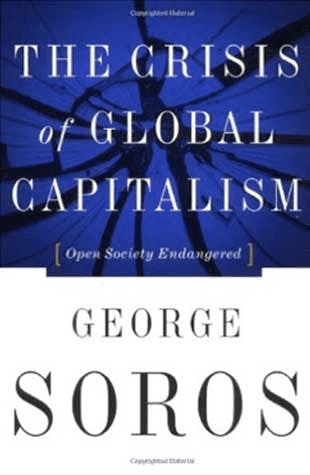
An ingenious overview of the world economy and Geopolitics as on 1998.
In this book, George Soros explains his theory of reflexivity in length and uses the financial markets as a field of example to demonstrate its workings. The first part of the book is dedicated to the theoretic explanation of his theory which is for the most part, very dry and heavy.
The second part is where the fun begins. He starts by analysing the basic framework of the world markets. He explains how the capitalist system can be compared to a globalized empire unmatched by any predecessors. Unlike in the past, this empire does not trample upon the sovereignty of the member nations but yet exercises power and control in other ways such as influence over people’s lives as opposed to geographical expansion. The empire analogy befits the United States and other major economic powers which have allied interests like Germany and Japan. These countries or the centre of power are the givers of capital and the nations who are receiving capital are the peripheries. The periphery nations are often at the mercy of those who are at the centre. He explains the sequence of events that occurred that caused the market in Eurodollars to develop in the 1970s, and boom/busts in South America, South Asia, Japan and Russia.
The content is of very high value to those who want to deepen their understanding of how the financial world functions at the very top. The book is filled with awe inspiring analysis and predictions of the markets and economies. This material is for serious market and history buffs only who apply their minds using the top-down approach.


